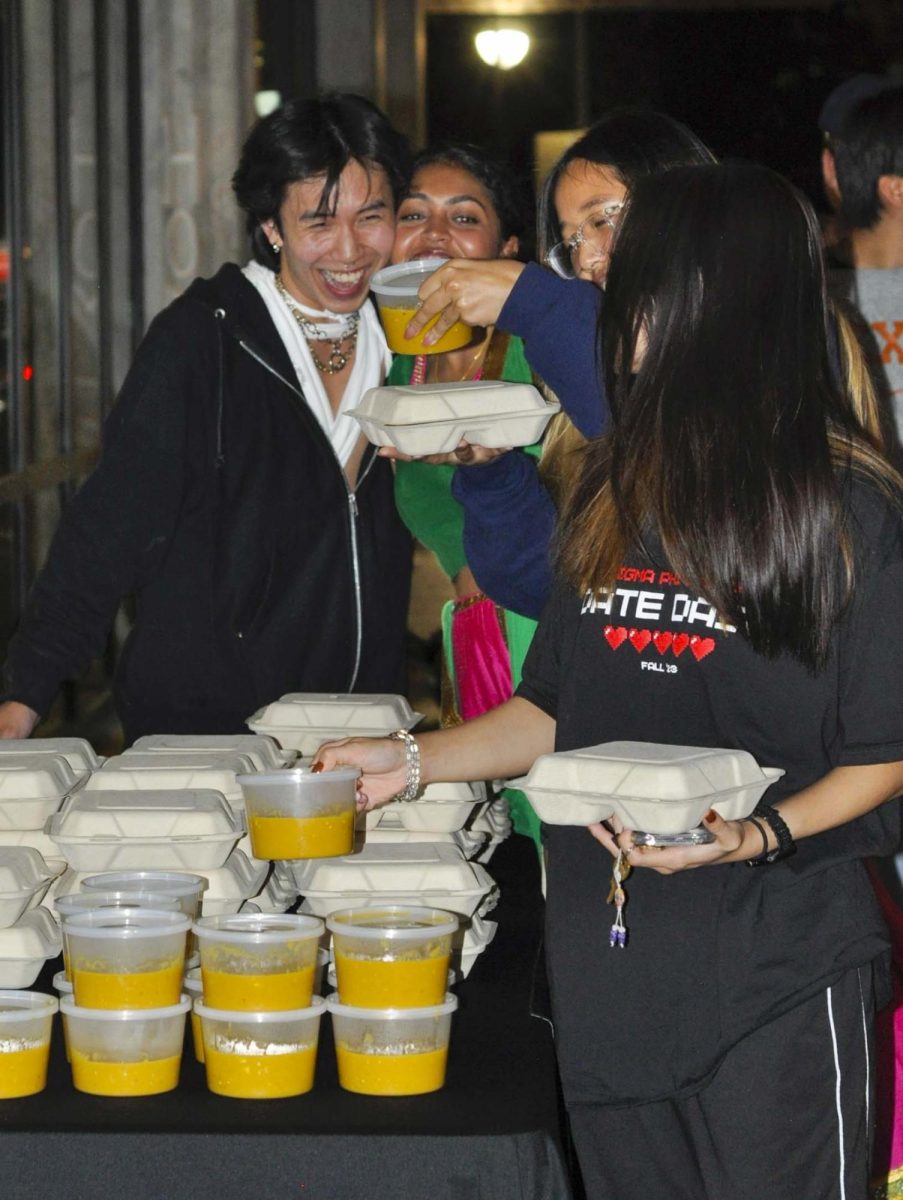At 8 p.m. nearly every Friday night, public health juniors Dat Duong and Alexis Reyes meet on the corner of West 21st and San Antonio streets with a purpose: to collect a few of the hundreds of excess meals produced in West Campus and redistribute them to UT students. At a university where one-third of students face food insecurity, Duong and Reyes do what they can to address the issue.
Started as a passion project of Katherine Ospina, a sociology, international relations and global studies senior who witnessed the high volume of food waste in dining halls during her freshman year, West Campus Collective serves as one of several student-led organizations fighting food insecurity in the UT area. After distributing more than 300 meals with their partners, WCC now looks to expand its reach even further.
“(My freshman year), I started to get anxious about the prices at Target and how all we have are bodegas,” Ospina said. “It’s not sustainable in terms of having healthy meals that are going to fuel us.”
Co-director Ospina said she applied to UT’s Social Entrepreneurship Learning Lab Fellowship in her second semester, hoping to examine food access in West Campus. Through SELL, she gathered data on students throughout West Campus, finding that 3.5 out of 5 people she talked to faced food insecurity at some point.
“There’s this wealth, health gradient that we see throughout the student population, where your income level directly correlates with your health levels,” said Reyes, who serves as communications director for the WCC. “West Campus Collective tries to combat that.”
Reyes said lower-income students must live deeper in West Campus and have little access to fresh food, often forced to source most of their nutrition from bodegas with limited options.
“Our motto is, ‘What starts here changes the world,’” said co-director Duong. “I feel like there’s not much of a proper system to ensure that students can focus on education, can focus on success here, when they can barely figure out where their second meal is coming from.”
Duong said the lack of access in West Campus, one of the most densely populated areas in Texas, constitutes a food desert. Students living at San Gabriel Street or farther can anticipate a 20-minute walk to the nearest grocery store: the Target on 21st and Guadalupe streets. The 642 route that serves many students runs only from West Campus to San Jacinto Hall in a loop, missing the hub of fresh groceries closer to 41st Street.
“If Austin and the University of Texas want to push this idea of sustainability, and they want to become a sustainable university,” Duong said. “(Food waste) is a really good place to start.”














